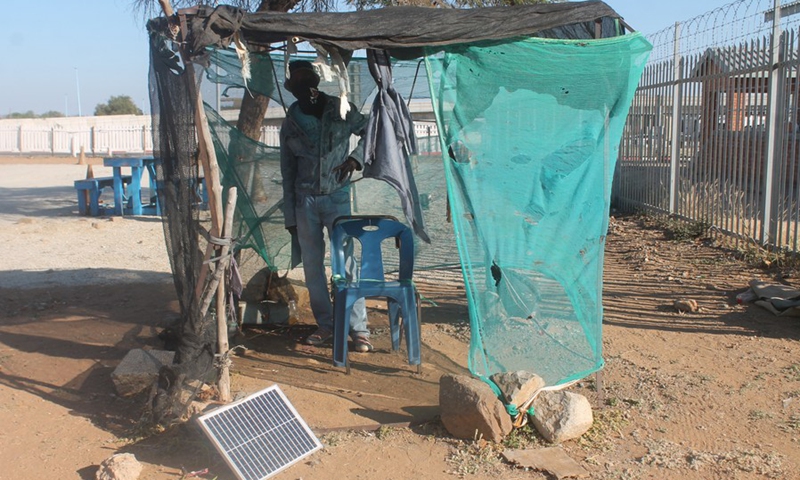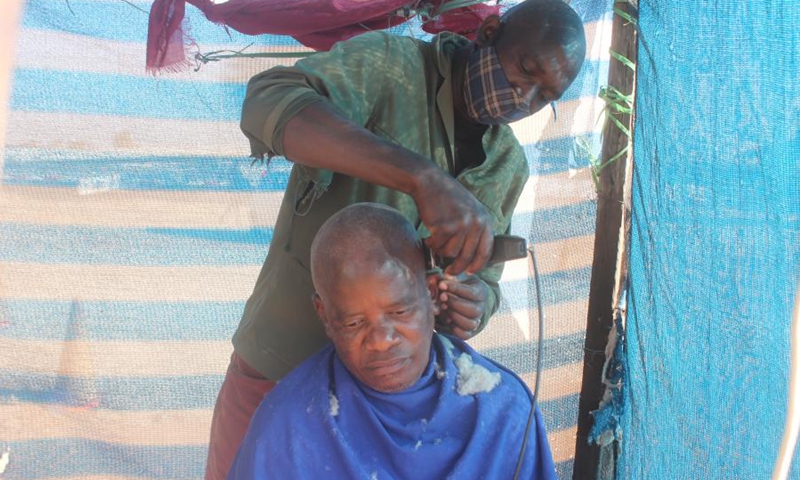
Kefilwe Gabatingwe, who bought a solar panel, a power converter and haircut clips from Chinese shops to start a business, is seen at his barbershop in Francistown, Botswana, on May 18, 2021.(Photo: Xinhua)

Lekang Botlhoko cuts a customer's hair using a device bought from a Chinese shop in Francistown, Botswana, on May 18, 2021.(Photo: Xinhua)
As Botswana's diamond-driven economy has been hit hard since the COVID-19 pandemic struck last year, independent companies, which mainly rely on government tenders, have found the going tough and many of them are implementing cost-cutting measures in order to remain afloat.
Small and medium businesses in Botswana's capital of Gaborone and the second-largest city of Francistown have resorted to installing solar panels obtained from nearby Chinese shops dotted across the major cities of the country.
Hairdressers and secretarial service providers have designed makeshift saloons powered by solar panels at open spaces in order to continue eking out a living after failing to pay rentals and high electricity bills.
On April 1, Botswana Power Corporation, the country's sole power utility, hiked power tariffs by 3 percent, a development that has resulted in electricity charges going beyond the reach of many small business operators.
"Power is now expensive in Botswana hence I decided to purchase a caravan and install a solar panel which is easily accessible at Chinese shops around town," said Itekeng Kenosi, a young man running a secretarial shop in Francistown.
Kenosi said operating in a caravan is very cheap. Besides being cheap, Kenosi said he has the option of powering his photocopying and binding machines using solar system as opposed to renting an office space.
Kefilwe Gabatingwe, 38, said he had bought a solar panel, a power converter and haircut clips from the Chinese shops to start a business. All his equipment cost him only 1,000 pula (about 100 U.S. dollars), he said.
"My investment capital was very little because the apparatus were brought to us by the Chinese," said Gabatingwe, adding that he is making a monthly income of between 1,500 and 2,000 pula, which is equivalent to between 150 and 200 U.S. dollars.
Gabatingwe, who stays at Chadibe village, some 70 km northwest of Francistown, said he is managing to make an income enough to feed his family of five.
